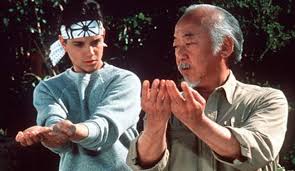In my last post I talked about the magic E (the E at the end of a word that magically transforms the previous vowel sound) and gave some examples of words with magic Es as well as some words that look like they have a magic E but don’t. However, all the words I gave you (with or without a magic E) had one thing in common: the E was silent.
In other words, when you see a word like opposite or machine or advice or palace, you never actually say the E at the end. Well, that’s true over 99% of the time, but English being English, there are exceptions. Occasionally we do pronounce the final E.
Probably the most common exception is recipe, pronounced with three syllables:
/ˈresɪpi/
A recipe is the set of instructions that you follow when you want to cook something. Sometimes we use recipe to talk about a method for reaching a certain outcome, good or bad, as in “a recipe for success” or “a recipe for disaster”. Note that we don’t use recipe to mean the piece of paper the doctor gives you that allows you to get medicine; we call that a prescription.
Here are some more exceptions. The first two are brand names:
Nike
/ˈnaɪki/
I always want to say this to rhyme with like and bike but that’s not how you say it. The sportswear company took its name from Nike, the Greek goddess of victory.
Adobe
/əˈdəʊbi/
This is the name of a software company. The word adobe, which we borrowed from Spanish but has Arabic origins, also means a kind of sun-dried brick used as a building material.
anemone
/əˈneməni/
A lot of native speakers have difficulty saying this word! It’s a type of plant with small, pretty flowers. If you’re lucky enough to live by the sea, you might also see a sea anemone. This word has Greek origins.
epitome
/ɪˈpɪtəmi/
This isn’t an especially common word, but you’ll hear it from time to time. It’s yet another word that we borrowed from Greek, and it means the perfect example of something. I could say that my apartment is the epitome of luxury, though of course I’d be lying.
hyperbole
/haɪˈpɜːbəli/
This is another Greek-derived word, and it means an exaggeration. If I said “I’ve seen this film thousands of times”, that would be an example of hyperbole.
coyote
/kaɪˈəʊti/
I’ve never seen one of these, except in cartoons, so this isn’t a word I often need to use. Coyotes are common in America and are a bit like dogs.
antipodes
/ænˈtɪpədiːz/
People from the UK sometimes use Antipodes to talk about Australia and New Zealand, but the word really refers to opposite points on the earth’s surface.
Hades
/ˈheɪdiːz/
Hades is the Greek god of the underworld.
There are also words we’ve borrowed from French where the final E is pronounced, such as café (/ˈkæfeɪ/), cliché (/ˈkliːʃeɪ/) and résumé (/ˈrezuːmeɪ/). All these words should really be spelt with acute accents (é) but some people are lazy and leave them off. A résumé (with the accents) means a summary. When applying for a job in America, you’ll usually have to include a résumé; in Britain we call this a CV, which stands for “curriculum vitae”. Note that resume (without the accents) is a completely different word; it’s a verb, meaning to continue after an interruption. Resume is pronounced /rɪˈzjuːm/, with a magic E!
Update (3rd April 2018):
One of my students recently suggested I add karate to this list, so here goes:

karate
/kəˈrɑːti/








